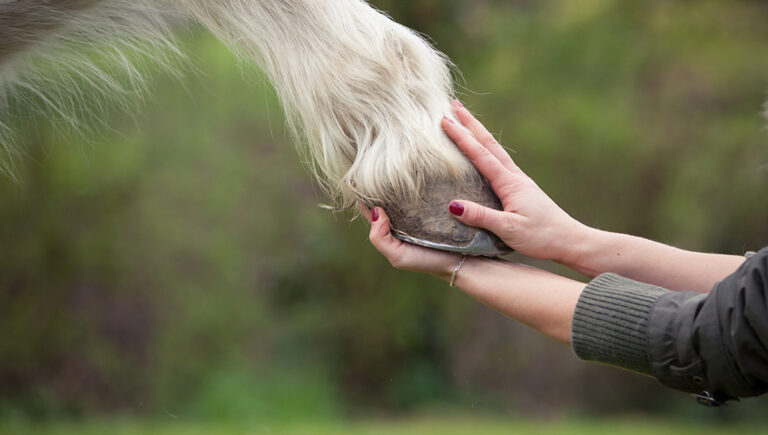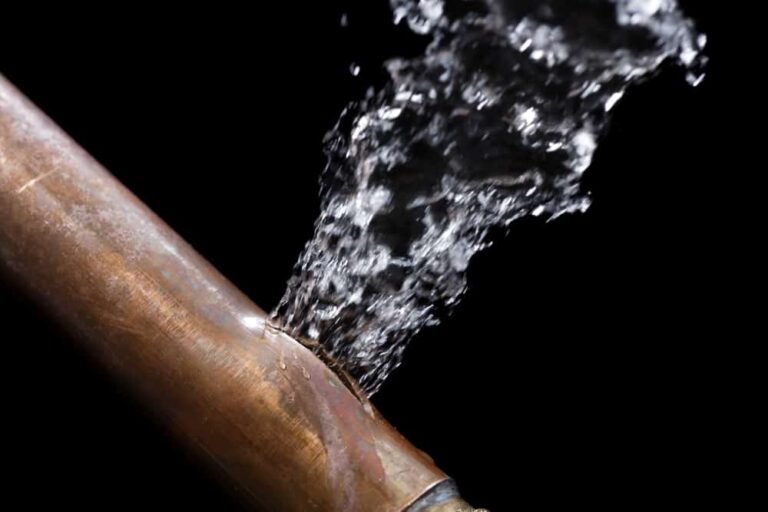At the foundation of every horse’s health is what they eat, and this is especially true for their hooves. The hooves are a reflection of overall well-being, and their condition can be greatly influenced by diet. Key nutrients play a vital role in maintaining strong and healthy hooves.
Proteins, particularly keratin, are crucial. This structural protein forms the primary component of the hoof wall. Essential amino acids, like lysine and methionine, are the building blocks for keratin and need to be present in adequate amounts in the diet.
Balancing Minerals
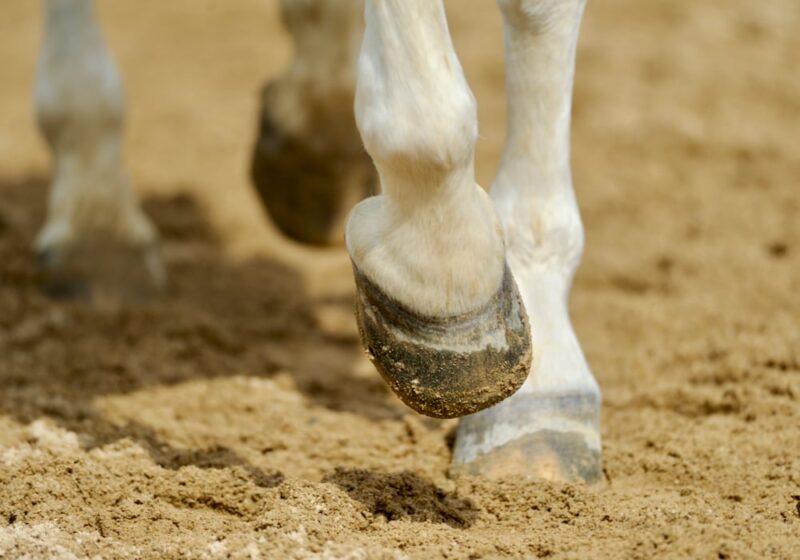
Minerals are pivotal in hoof health. Two of the most critical minerals are zinc and copper. These trace minerals aid in the development of connective tissues and the maintenance of integrity.
An imbalance or deficiency can lead to weakened structures and increased susceptibility to problems like cracks and infections. Equally important are calcium and phosphorus, which must be in the correct ratio to promote optimal growth and strength.
The Impact of Fatty Acids, Oils, and Conditioners
Fatty acids, particularly Omega-3 and Omega-6, are beneficial for maintaining pliability and moisture balance. Dry, brittle hooves often signify a lack of these essential fatty acids in the diet.
Adding sources like flaxseed or specially formulated supplements can significantly improve hoof condition. Oils and conditioners are not only good for adding shine to the coat but also for enhancing health. They provide a direct source of energy and essential fatty acids. Check here for more information.
Vitamins
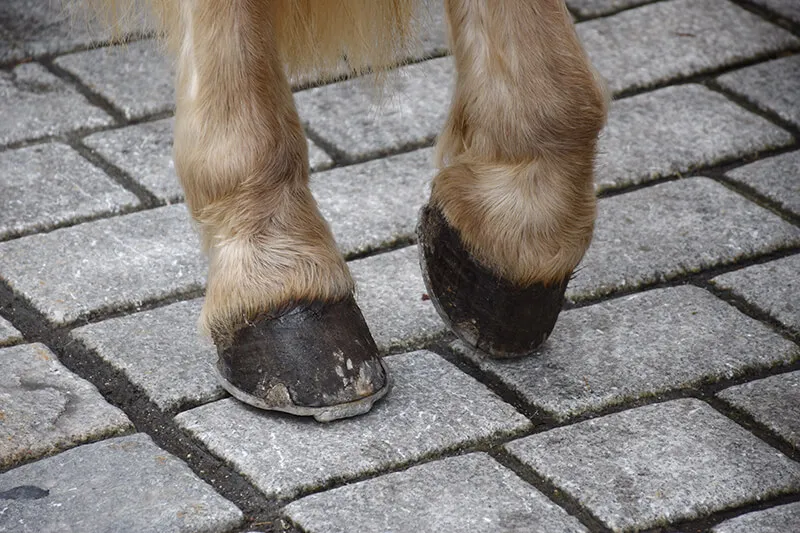
Vitamins play a small but mighty role in hoof health. Biotin, a B-vitamin, is often touted for its ability to improve hoove quality. Research shows that supplementing with biotin can enhance hoof hardness and growth.
However, it’s important to remember that results aren’t immediate and may take several months to become apparent. Other vitamins, such as Vitamin A and E, are also necessary for healthy hooves, albeit in smaller quantities.
The Role of Forage in Hoove Health
The type and quality of forage your horse consumes are pivotal to hoof wellness. High-quality forage provides essential nutrients and helps in maintaining gut health, which is directly linked to nutrient absorption and, consequently, hoove quality. Poor-quality forage can lead to deficiencies and imbalances, negatively affecting hoof growth and strength.
Water: The Overlooked Nutrient
Water, often overlooked, is critical for health. Hydration plays a key role in maintaining hoof elasticity and preventing dry, brittle hooves. A horse’s diet should ensure adequate water intake, especially during dry or cold seasons when horses tend to drink less.
Understanding Feed Quality and Its Impact on Hoof Integrity
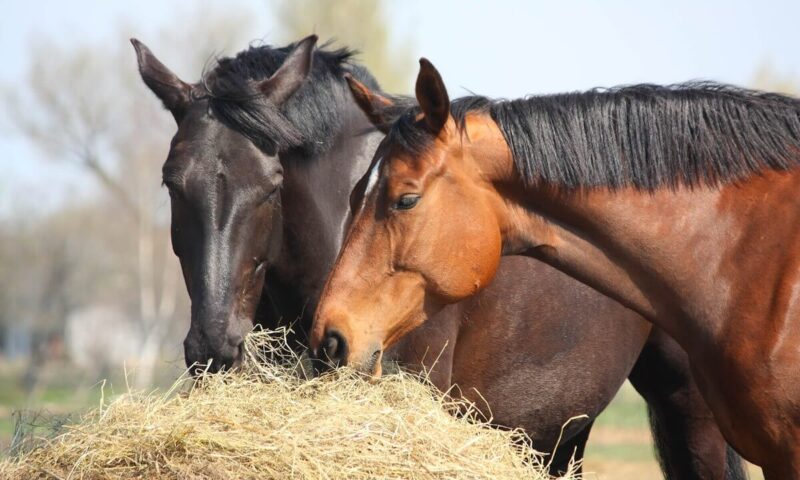
Quality is as important as the type of feed given to horses. The nutritional value of the feed directly impacts the hoof condition. It’s not just about providing the right nutrients, but ensuring they are in a form that the horse can absorb and utilize effectively.
For instance, feeds high in sugar and starch can lead to metabolic issues, indirectly affecting hoof health. Consistently feeding high-quality, balanced feed is crucial for maintaining optimal hoof condition.
Addressing Problems Through Diet Adjustments
When hoove problems arise, diet adjustments can be a key part of the solution. For example, if a horse develops laminitis, a painful inflammation of the hoof, dietary changes are essential.
Reducing sugars and starches and focusing on a high-fiber diet can help manage this condition. Similarly, if a horse has weak, slow-growing hooves, increasing protein and mineral intake might be beneficial. It’s important to work with a veterinarian or equine nutritionist to tailor the diet to specific hoof health issues.
Seasonal Considerations in Nutrition
The nutritional needs of horses, and consequently their hooves, can change with the seasons. In the growing season, when grass is abundant, horses might receive excessive amounts of certain nutrients like carbohydrates, which can affect hoof quality.
Conversely, in winter, the lack of fresh forage might lead to deficiencies. Adjusting the diet seasonally ensures that horses receive the right balance of nutrients all year round.
Age and Activity Level
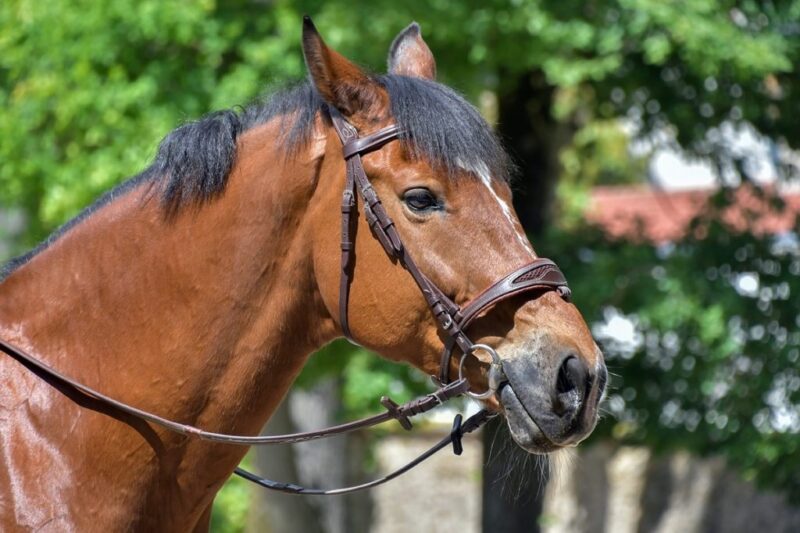
An often-overlooked aspect of hoof nutrition is how it should vary depending on the horse’s age and activity level. Young, growing horses have different nutritional needs compared to mature, active horses or older, less active ones.
For instance, growing horses might require more protein and minerals for development, while older horses might need more joint support and anti-inflammatory nutrients to maintain hoove health.
The Myth and Reality of Hoove Supplements
The market is flooded with hoof supplements, each claiming to be the solution to poor hoof health. While some can be beneficial, it’s important to understand that supplements should complement, not replace, a balanced diet.
Supplements can fill in nutritional gaps or address specific deficiencies, but they are not a cure-all and you should be careful while selecting proper ones for your needs. Owners should critically evaluate the ingredients and the needs of their horses before adding supplements to their diet.
Monitoring and Adjusting
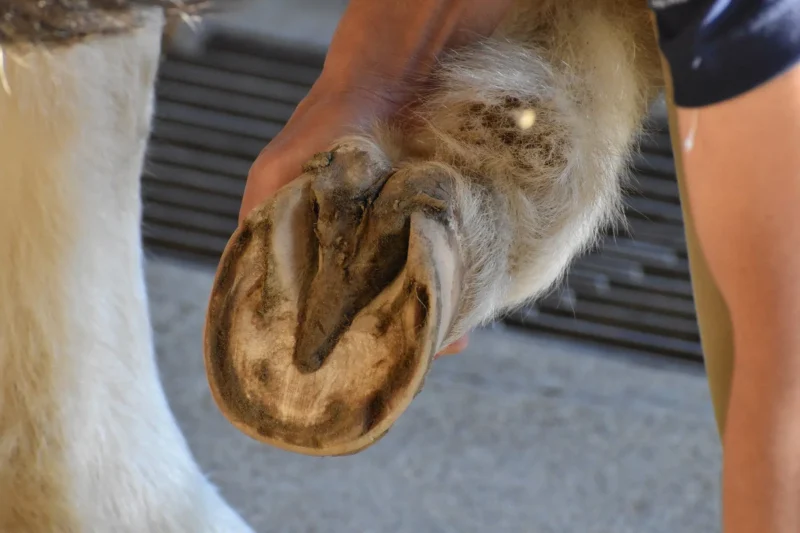
Finally, maintaining hoof health through nutrition is an ongoing process. Regular monitoring of the horse’s hooves and overall health is essential.
Changes in the hoof’s appearance, texture, or growth rate can indicate nutritional imbalances or deficiencies. Adjusting the diet based on these observations, in consultation with professionals, ensures that the horse’s nutritional needs are continually met.
Summary
Hoof health is not just about what a horse eats but how the diet is managed and adjusted according to the horse’s individual needs and environmental factors. By understanding the complex relationship between diet and hoof health and making informed feeding decisions, horse owners can significantly enhance the condition and strength of their horse’s hooves.
Remember, a horse’s hooves are a mirror to its overall health, and paying attention to their diet is a key step in ensuring their well-being.
Related Posts:
- 12 Tips to Transform Your Online Presence Through…
- Top 15 Destinations for Medical Tourism and Tips for…
- How to Apologize to Your Girlfriend and Strengthen…
- Insta-Quick Celebrity: How to Fast-Track Your Rise…
- Influencers Dilemma: Choosing the Ideal Social Media…
- Strategies for Managing Your Social Media Presence…

